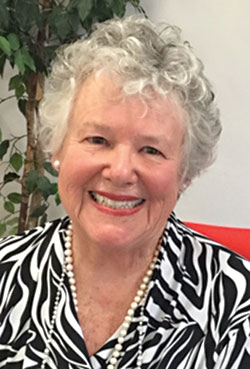Part 1 • Part 2 • Part 3 • Part 4 • Part 5

By the end of the second summer in West Virginia camp, our director was seen escorting a stranger through camp. He was interested in buying the camp. I was introduced to the prospective buyer as I was painting thunderbirds and other Indian symbols with my campers.
There had been talk of a near drowning that summer which caused our owner to decide he no longer wanted to carry such liability. Who could blame him?
The staff spoke of their concerns about the camp changing hands to possibly someone who had no previous experience with the camp. Such a person might not keep the traditions going from year to year. Concerns were to no avail. By the end of summer, the camp was sold.
I was not rehired for the next summer which suggested the beloved Indian program was possibly going to be faded out. We all wondered if the new owner would survive with no previous camp experience. (He did not.)
I lost track of what was happening at camp, my family now spent summers in the mountains of North Carolina. But I recently returned to the old campground and some 50 years later it is now the site of a community of lovely homes.
I walked through the fields of yesteryear. The memories filled my brain as suddenly as a flock of birds landing in a field. I felt tears pressing in the back of my eyes. All the cabins where the campers once lived were gone. The totem poles still stood. The lodge where we ate our meals was now a community activity center and our old dining tables had been converted to pool tables.
We eventually moved back from Florida to Newport News in 1978 where my husband started a private practice of law and I taught in private school. One day Peter came to visit us. He had long since become a priest and had been assigned his first church. He recalled some of his experiences as a priest to me and I was proud of his accomplishments and hoped all would be well for him.
I never saw him again. I lost all contact with Peter but one day many years later a letter arrived from him and he said he had been called to reside at his bishop’s home. I imagined he might have been appointed a special assistant. He also mentioned he was being sent to Rome for two weeks and I believed that possibly great things were in store for him.
That was not the case. It was a bad time for the clergy and the national media reported numerous allegations of ministerial abuse of children. No denomination was spared. Some clergy were resigning, being sent to other areas of the country and even defrocked.
Some church leaders announced that if any ministers were accused of improper behavior, they would be reporting them to the police. If found guilty of abuse, they would be going to jail.
Publicity was raging and emotions were at high pitch. I read such accounts with sinking hopes. When tragedy struck, it was fast. My friend returned from his visit to Rome and soon after I heard that he had died of a self-inflicted gunshot. I also read a list of clergies that had been accused of allegations of improper conduct and what had happened to them.
After Peter’s name was a simple word: Deceased.
I wept. Then came the tormenting questions. Was there something I could have done to help him? Could I have somehow encouraged a new profession that might have spared him from embarking on such destructive behavior when he became a priest?
Today our society is tolerant of sexual behavior between consenting adults but there is no tolerance for such adult behavior regarding children. The church demands even stricter behavior from its clergy.
To this day, several decades later, I do not know what I could have done to have saved my friend’s life and who knows how many boys that may have suffered.
My challenge was to replace grief for his tragic ending by letting it go and remembering the positive and happy memories of the children that I served those euphoric summers in West Virginia. It serves no purpose to ruminate over sad events especially when there is nothing that could have been done to change outcomes.
It is taking good care of the children that is and should always be our ultimate concern in society.
But forgetting the sadness one experiences in life is never easy. It does help to write about unhappy memories, however, as this series has proven for me.
(Conclusion)
© 2024


